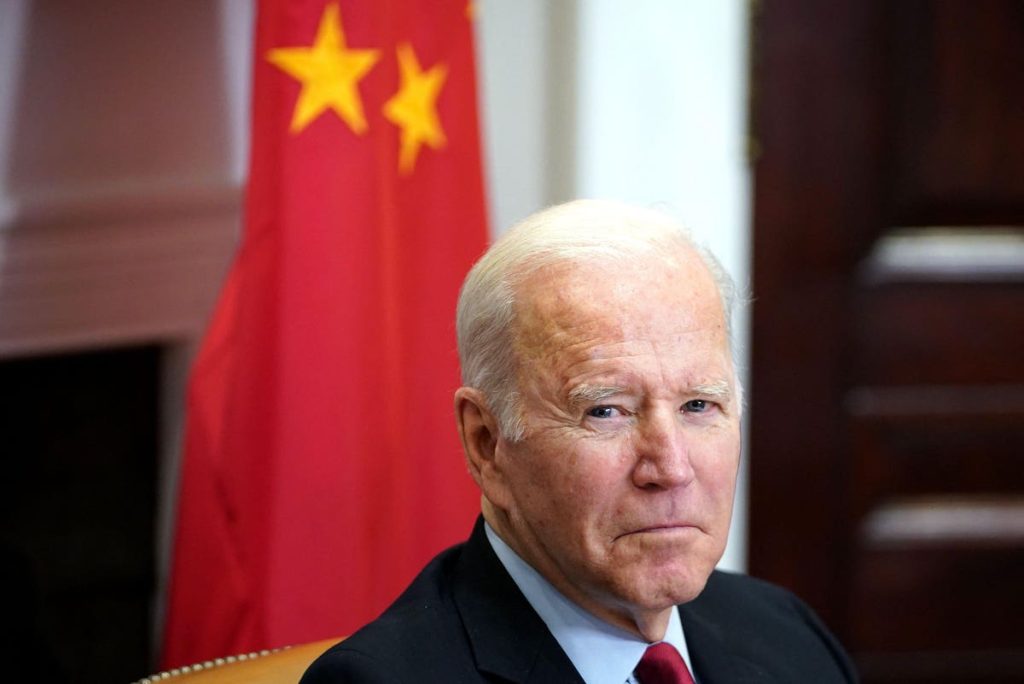Leaders in both Beijing and Washington talk a lot about improving relations. Yet all the while, they are imposing rules that stifle trade with and investment in the other. Beijing has two new laws – one entitled Anti-Espionage and the other Foreign Relations. Both will make it much more dangerous than preciously for foreign firms to invest in China or do business there. Washington’s Chips for America Act restricts exports – mostly of technology – to China, while the government has recently announced restraints on investment flows. These measures, from both sides, will stifle economic exchanges between these two nations much more severely than either government claims or expects. China will suffer more than the United States.
Officials in both Washington and Beijing, as well as many lawyers involved, claim that these laws will have only a limited effect on business. Typical is the judgement of Jeremy Daum, senior fellow at Yale Law School’s Paul Tsai China Center. He declared that Beijing’s “legislative changes don’t increase the risk to foreign businesses in China.” On the American side, Treasury Secretary Janet Yellen asserts that Washington’s new rules – both those previously existing and those just announced – will not “broadly disrupt” trade between the two countries.
Businesspeople will have a different interpretation. They know that no matter how tightly written a law is, it carries ambiguities that allow authorities room for interpretations. That room makes it risky for any business to even approach activities forbidden by the legislation. Michael House of Perkins Coie summarized such fears in this way: “The current environment lends itself to more occasions when a regulator or someone in government [. . .] may choose to take action that is not transparent.” American business will assess the implicit risks and deny itself activities that are in a strict sense are not even mentioned in either Beijing’s or Washington’s new rules. No one wants to invest large sums in a venture that an official reinterpretation might close or bear the expense of a major legal action to keep it open.
What makes these laws especially dangerous to business is their respective claims to serve “national security.” Especially in China but also in the United States, national security lends itself to expansive interpretations. China’s new laws certainly seem broad. The Ant-Espionage Law would apply to anyone “seeking to align with an espionage organization” or obtaining “documents, data, materials, or items related to national security or interests.” What is more, the law, according to Perkin’s Coie’s translation, calls on “all levels” of government to educate and manage related security precautions.” The Foreign Relations Law could penalize a foreign firm and arrest its staff if it, in the judgement of a government official, “endangered China’s national security, harm the societal public interest, or undermine societal public order.” This kind of broad language is an invitation to caprice.
Emphasizing the dangers involved to foreign firms are a series of raids Chinese authorities have already undertaken under these new laws. Not too long ago, Chinese security arrived unannounced at the American due diligence firm, Minz Group, and detained several staff members. They also arrives at the consultancy, Bain & Co. to question staff at this U.S.-based firm’s Shanghai offices. Officials investigated the international consultant Capvision. In no case did the authorities offer an explanation except to claim, “national interest.” To date no one in Beijing has revealed what it is these firms did to bring on these actions. From a foreign businessperson’s point of view, this news is reason to steer clear of anything even vaguely like these otherwise reputable companies or simply to avoid China altogether.
On the American side, things are less ominous, but the rules are restrictive, nonetheless. The Chips for America Act, passed last year, forbids the sale of advanced semiconductors to China as well as equipment to manufacture computer chips. Pending investment restrictions focus on semiconductors, quantum computing, and artificial intelligence, like China with an eye to “national security.” There is no suggestion of equivalence here. In the United States, unlike China, those subjected to such laws have recourse in the courts that might find in their favor. From a business standpoint, however, this is small comfort. A legal fight would impose considerable expense and take considerable time under which business would face disruption and the loss of return on what might well be a large investment. Managements might conclude that better judgement would skip the whole venture.
China has more to lose in this exchange of restrictions than does the United States. American business will miss out on profitable opportunities in another large economy as well perhaps the savings and efficiencies that a China operation might offer. In contrast, China wants and needs the expertise and technologies brought by foreign investments and foreign connections. Beijing has made that clear. The restrictions – imposed by both Beijing and Washington – will make such transfers less abundant and likely also accelerate the flight of foreign business from China, something of which readers of this column should by now be familiar. These actions as well as decisions to avoid contact in the first place cannot help but starve China of these needs.
Read the full article here









